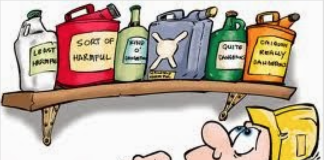Tag: antidepressants
David: A Sanguine View of Antidepressant Drugs and the Mental Healthcare...
David has taken antidepressant drugs on and off over the last few years and talks about his experiences of the mental healthcare system.
We Need to Stop Prescribing Antidepressants in Primary Care
In this op-ed for Pulse, Des Spence argues the case for dramatically reducing antidepressant prescriptions, as antidepressants are often completely ineffective and unnecessary.
"Clearly psychological pain,...
Marion Brown: Psychiatric Drugs, Human Givens Therapy and Medically Unexplained Symptoms
Marion Brown is Psychotherapist who works with the Human Givens approach to supporting people in emotional or psychological distress, she has become increasingly concerned about the effects of psychotropic medications on patients.
Music Therapy Interventions Reduce Depression Symptoms in Dementia
Therapists can use music to meet the emotional and social needs of individuals with dementia.
Stevie: Severe and Protracted Withdrawal From Paroxetine
Stevie describes her experiences taking antidepressant drugs and her severe and protracted reaction to trying to withdraw.
Simone: Postnatal Depression, Fibromyalgia and Antidepressants
Simone talks about her experiences of postnatal depression, fibromyalgia and her treatment with antidepressants.
The Truth About Long-Term Antidepressant Use
From The Guardian: As antidepressant prescriptions rise and have doubled in the past decade, mental health experts are becoming increasingly concerned about adverse effects and...
Megan: Approaching Antidepressant Withdrawal After Prior Failed Attempts
Megan talks about her experience with anxiety and insomnia, her attempts to withdraw from her medications and how she approached her tapering more carefully to minimise withdrawal effects.
Susie: Stopping An Antidepressant Cold Turkey After 2 Years
Susie tells us about her experiences of stopping her antidepressant drug cold turkey after 2 years of taking it and how her doctors failed to identify antidepressant withdrawal.
Nora: Extreme and Sudden Adverse Antidepressant Reactions
Nora tells us about the sudden and extreme adverse reactions that occurred immediately upon starting her antidepressant. She also tells us about the attitude of her doctors and how her life has changed since that short course of treatment.
Might Antidepressants Create Treatment Resistance?
From Psychiatric Times: A recent study of individuals diagnosed with bipolar II disorder found that patients who have taken antidepressants in the past are less likely to respond...
Physical Activity Predicts Fewer Symptoms of Depression in Children
An article published in Pediatrics is the first to examine the relationship between physical activity and depression in middle childhood (years 6 to 10) longitudinally.
Christopher: A Transformational Journey from Psychiatric Hospital To Working In Peer...
Christopher describes his transformational journey starting with a very difficult childhood which led him to be treated for many years with various psychiatric medications. After successfully withdrawing, he now works a Program Manager for Heart & Soul inc in California, an organisation which offers a variety of mental health recovery-oriented and wellness support opportunities.
United Nations Statement Criticizes Medicalization of Depression on World Health Day
"There is a need of a shift in investments in mental health, from focusing on 'chemical imbalances' to focusing on 'power imbalances' and inequalities"
Majority of Pediatric Antidepressant Industry Trials Considered Low Quality
Meta-analyses including studies that detail these trials could be presenting misleading information.
This is What it’s Really Like to Date on Antidepressants
In this essay for Women's Health, one woman shares her experience of dating while on antidepressants. While antidepressants alleviated her anxiety, they also dulled...
Videos from Trial Over Generic Paxil-Induced Suicide
The trial of Dolin v. GlaxoSmithKline over the alleged paroxetine-induced suicide of Stewart Dolin recently began. Click the following links for video depositions of...
Trial set to Begin in Litigation Over Generic Paxil-Induced Suicide
From The Cook County Record: The trial of Dolin v. GlaxoSmithKline over the alleged paroxetine-induced suicide of Stewart Dolin began on March 14th. The trial is...
Claire: Antidepressant Withdrawal, Tapering and SSRI Discontinuation Syndrome
Claire shares her powerful story of being prescribed antidepressants at the age of 16 and her experiences of trying to withdraw., describing how she tapered gradually over 2 years, but went on to experience SSRI discontinuation syndrome
Moms Reach $6.2-million Settlement in Paxil Lawsuit
From The Province: Mothers alleging that taking Paxil during pregnancy caused heart problems for their children have reached a settlement of $6.2-million with GlaxoSmithKline U.K.
Article...
The Harm Reduction Guide to Coming Off Psychiatric Drugs
Based on more than 10 years work in the peer support movement,The Icarus Project and Freedom Center’s 52-page guide is used internationally by individuals, families, professionals, and organizations to support reducing and coming off psychiatric drugs.
Venomagnosia
In Ordinarily Well: The Case for Antidepressants, Dr. Peter Kramer makes two arguments that I agree with. The trouble for me is that Kramer’s clinical vision seems strangely rose-tinted. He is an advocate of using antidepressants to treat depression, but he doesn’t seem to see any of the problems antidepressants cause.
Antidepressant use During Pregnancy may Increase Risk of Birth Defects
Use of antidepressants increased the risk of organ-specific malformations in women with depression
Antidepressant Use May Increase Risk of Hip Fractures in Older Adults
Study finds antidepressant use is linked to increase in hip fractures in community-dwelling older adults with and without Alzheimer’s disease.
Industry Funded Trials Favor Drugs Over Psychotherapy
The researchers conclude that industry funding appears to bias studies towards pharmacotherapy over psychotherapy for the treatment of depression.






























